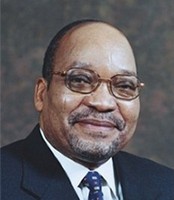Editor's note: This is the first of a two-part series on South African President Jacob Zuma's political prospects as leader of both the African National Congress and South Africa. Part I examines some of Zuma's recent successes in consolidating his political position within the party. Part II will examine his weaknesses and failures, which risk undermining his future prospects.
The defining moment in South African politics this year will be the national conference of the ruling African National Congress (ANC) in Mangaung in December. The conference will chart the ANC’s future direction and will elect the leadership to guide both the party and -- given the ANC’s political dominance -- the country over the next five years. Mangaung will see the election of a new National Executive Committee (NEC) and the re-election of the ANC’s top six office-holders, including the president. As such, Mangaung will determine the political future of current ANC and South African President Jacob Zuma.
Although the current political maneuvering within the party can be viewed almost exclusively through the lens of this forthcoming conference, several events ahead of Mangaung will also help shed light on the balance of forces within the ANC and indicate how things may play out at the national conference. At their own conferences, in July and September respectively, the ANC’s chief allies, the South African Communist Party (SACP) and the Congress of South African Trade Unions (COSATU), will make clear their policy positions as well as their preferences for the ANC leadership. Both wish to see a shift to the left, with the SACP firmly behind Zuma and COSATU more divided on the leadership question.

